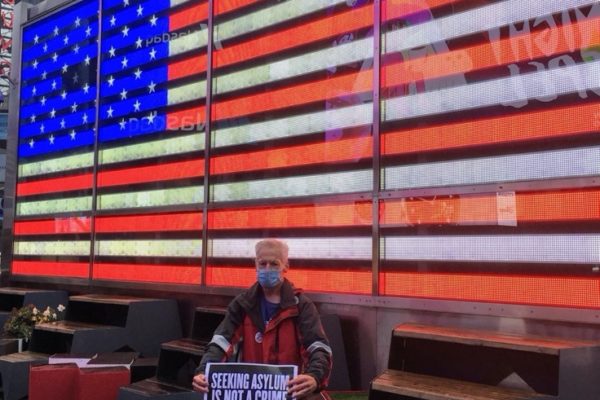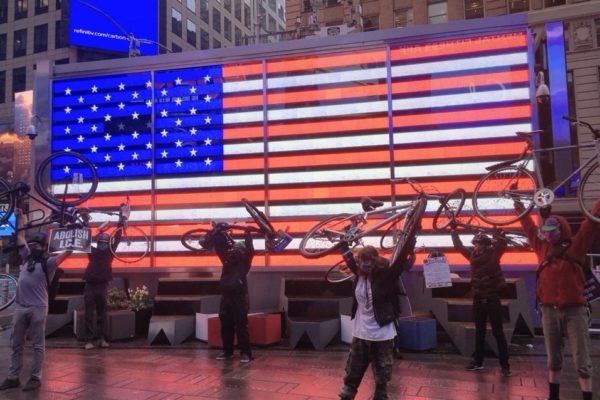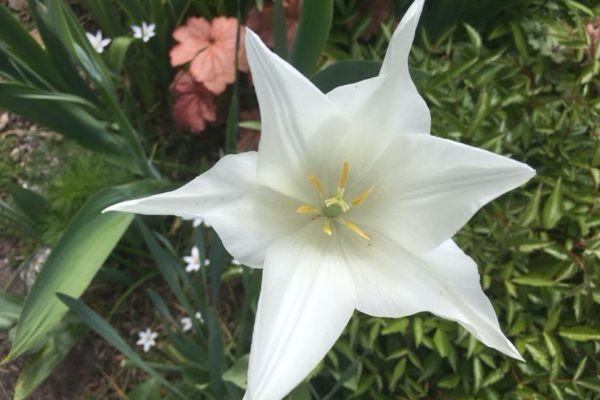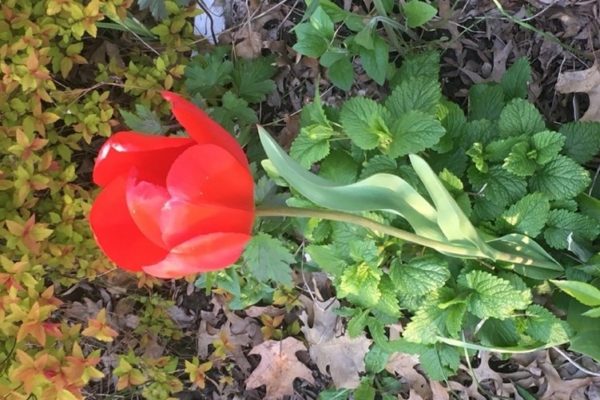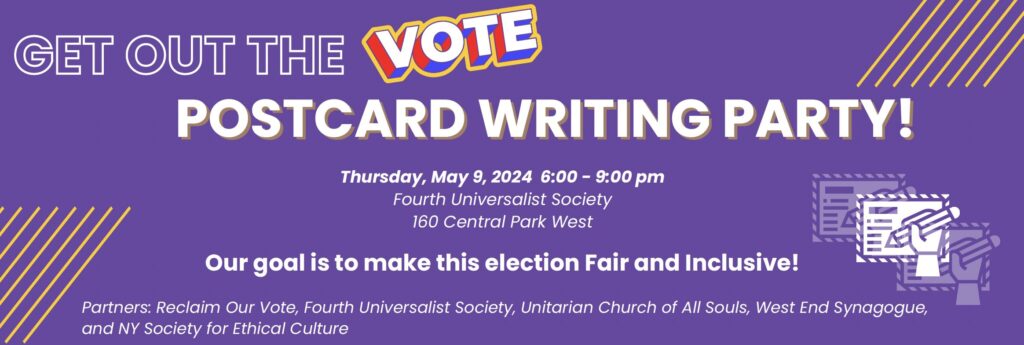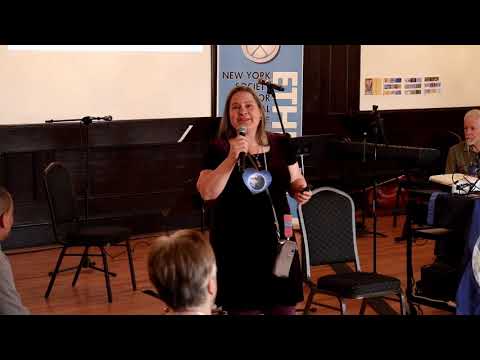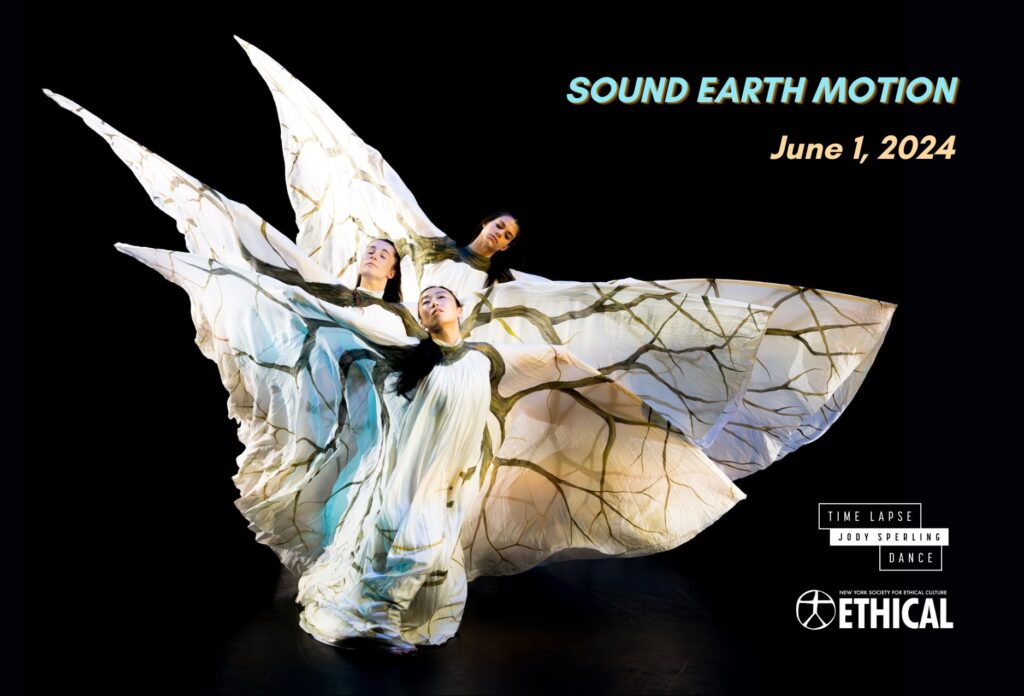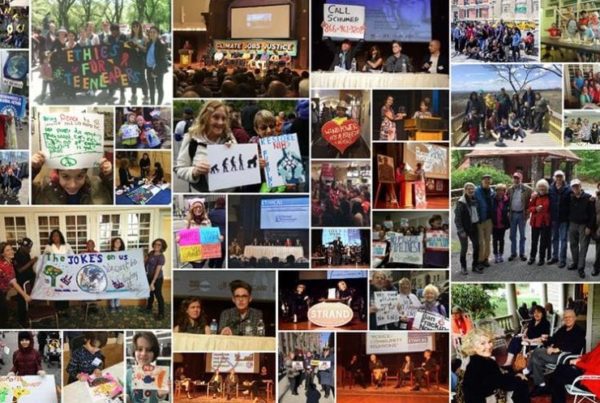
The latest Ethical Outlook Newsletter is online! Read below to see what the Society and our members have been doing to stay connected while apart.
Contents
From the Leader’s Desk | Ask the Members | About Our Programs | Weekly Programs | Sunday Platforms | Young Ethical Explorers | Ethics in Action | Local Heroes | What We’re Up To | Sharing & Caring | AEU News | Ethical Culture in the News | Ethical Essentials Quiz | Our Ethical Family | Affinity Groups
From the Leader's Desk
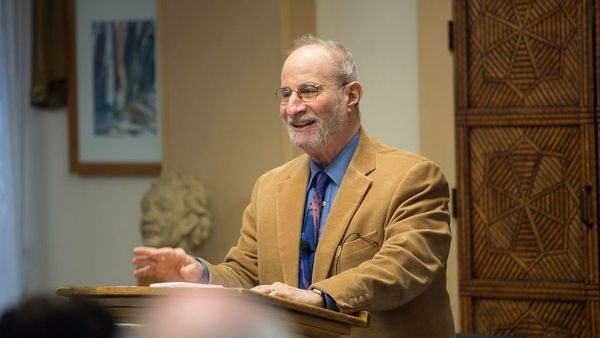
Joe Chuman: “America Doesn’t Just Have a Police Problem: It Has a Morality Problem”
By Dr. Joseph Chuman, Leader
(Originally published at The Hill)
It’s happened again. This time in Minneapolis, a city with a progressive ambiance. A black man dies under the knee of a white cop. In an episode reminiscent of the death of Eric Garner in New York in 2014, George Floyd had a cop’s knee pressed on his neck for more than eight minutes as he cried out that he could not breathe. To be black in America is a potential death sentence.
With enough public pressure and some luck, maybe, just maybe, justice will be done. It was a good step that all four officers were arrested and charged. But there is no certainty here. Some police seem to have a sensibility that they are beyond accountability, protected by their union and by a “blue wall” which places loyalty to one another ahead of their duty to society and to just conduct.
I am the clergy leader of a Humanist congregation in New Jersey, the Ethical Culture Society of Bergen County. In our religion, to be human is to be worthy of respect and care. It may be true that we have a police problem in this country — but an underlying current beneath that is we have a morality problem.
No doubt how police are trained is an issue. Mayor Jacob Frey said the technique the officer used was against regulations. It’s also worth noting that the officer in question had 18 previous complaints against him.
But beyond this case, there is the much larger context that propels these violations to happen.
In our religion, to be human is to be worthy of respect and care.
The largest is the endurance of racism that pervades American society. It’s a persistent disease reflective of a lack of respect for our fellow man and woman. I must admit that ten years ago, with the emergence of multiculturalism and the influence of the cultural left, I allowed myself to believe that America was on its way to overcoming its ugly legacy of racism and bigotry. I never believed that the election of Barack Obama signified that we had become a “post-racial” society, but I did believe that we were moving in the right direction. I was wrong.
Divisions across all lines, most ominously racial lines, have become characteristic of American society and have grown malignantly strident. Hatred has become too comfortable, and violence rooted in hatred too common. The resurgence of white supremacy is the potent fuel ready to be ignited into racial violence.
Yes, we need to rigorously investigate every incident of the police killing black men. We need to reform police practices. But I fear that until the persistence of racism and hatred in the American fabric is radically mitigated, police killings will inevitably continue.
…we can move our society in the direction of greater inclusiveness
American society is at a great watershed. We can either move in the direction of continued divisiveness, tribalism, distrust, intolerance, fear, and hatred. Or, we can move our society in the direction of greater inclusiveness, of an enlightened cosmopolitanism in which we can exercise our local allegiances if we choose and, at the same time, open ourselves up to embrace those outside our immediate community in a spirit of respect for the other, an appreciation of differences, and an abiding commitment to justice and equality for all.
This cannot be the responsibility of the black community.
Martin Luther King realized that if he was going to overcome Jim Crow, he needed the support of whites, who, of course, did not share the black experience, but were sympathetic to the cause and the goals of the Civil Rights Movement. Today we are faced with an analogous challenge, but perhaps one that it is even more daunting.
Ask The Members
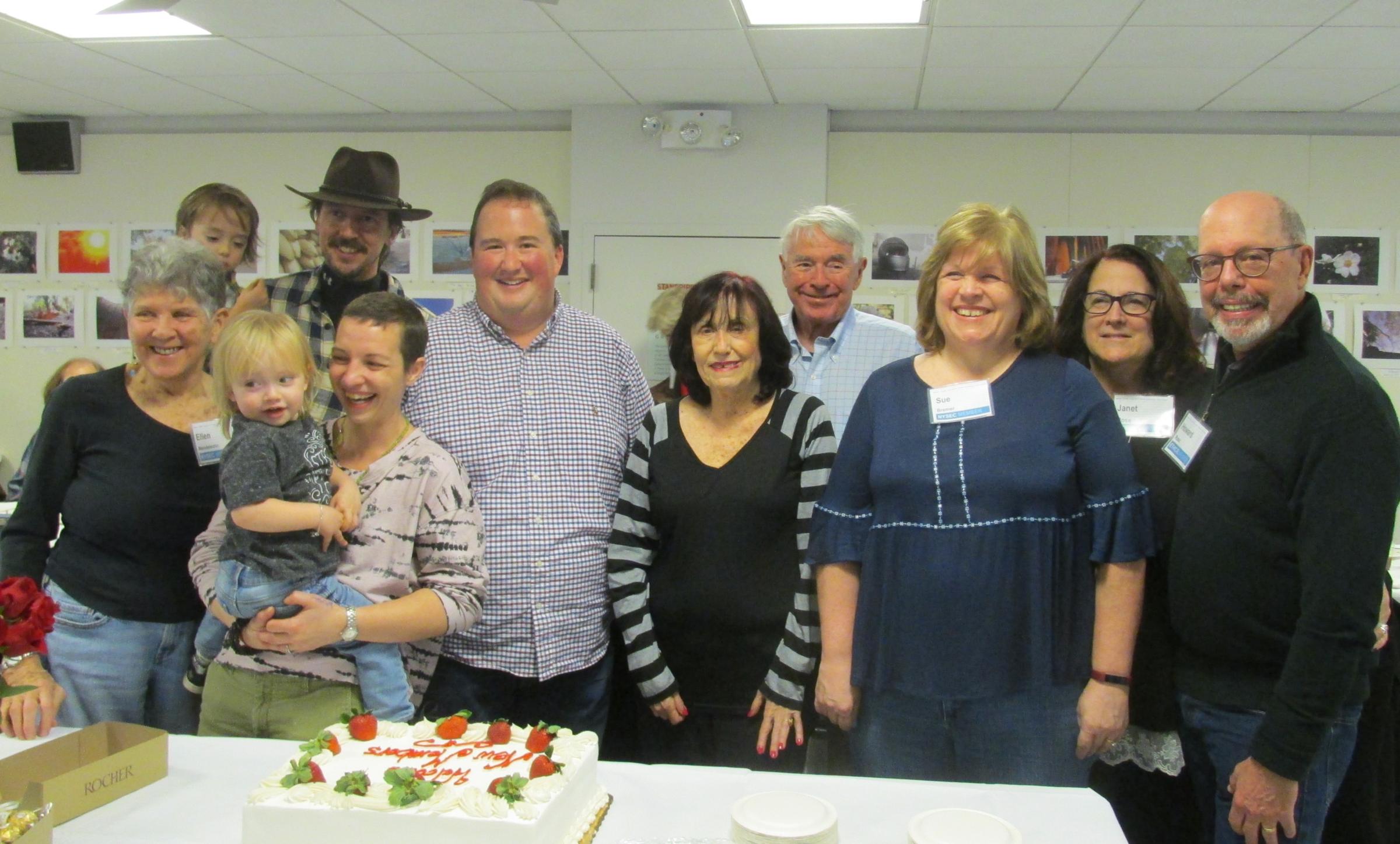
In light of the ongoing pandemic, where and what is the blessing for you in this situation?
By Maggie Determann, Membership Coordinator
“The blessing for me is the quality time I am getting to spend with my husband at home.”
—L Miller
“We’re always running around, so it was a blessing to spend more quiet and quality time with the family.”
—Shaun Carson Sylvester Williams
I don’t think there really is a blessing, except that I have gotten to know people better by text and by phone. But mostly I’ve gotten to know people better through their acts of kindness.
—Susan Needles
About Our Programs
Ethicists Unite! With Moderator Sandi Sacks
What would you do or say — or not — if you discovered your best friend’s spouse was seeing someone else? What if you had every reason to believe that your boss was taking bribes and making decisions against the best interests of the company? On the employment application and interview would you neglect to mention certain things in your background rather than acknowledge and explain them lest they be discovered later? Which is the more ethical choice in these quandaries?
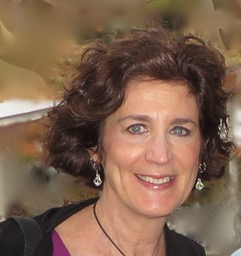 In recent weeks, member Sandi Sacks has been posing questions to an eager cadre of participants, none shy about expressing an opinion. Sandi has posed challenging questions, including some that appeared in the popular New York Times column, “The Ethicist,” and participants have posed their own as well. None have clear-cut answers. There are always ethical facets in the prism of perspective. It always makes for lively discussion.
In recent weeks, member Sandi Sacks has been posing questions to an eager cadre of participants, none shy about expressing an opinion. Sandi has posed challenging questions, including some that appeared in the popular New York Times column, “The Ethicist,” and participants have posed their own as well. None have clear-cut answers. There are always ethical facets in the prism of perspective. It always makes for lively discussion.
Sandi tells us, “Discussions of ethical dilemmas encourage us to look at different perspectives, broaden our outlook, become less judgmental, and fine-tune our critical thinking skills. We quickly learn that there is often no right or wrong answer; rather, we search for the better choice. Also, learning to live with the uncertainty of what we determine to be the “best” or “fairest” choice is a challenge. Exploring together with others and reflecting on our own values is a very satisfying, growth enhancing, and bonding experience for me.”
Here’s what members have to say:
I always look forward to Sandi’s “Ethicists Unite!” program. It’s an hour of convivial fun and thought-provoking conversation about authentic ethical situations. I highly recommend it. — Sondra Stein
At “Ethicists Unite!” we discuss real ethical problems. It’s a great way to spend an enjoyable and thoughtful hour. Sandi is a wonderful moderator. Hope to see you there. — Deborah Goldstein
Ethicists Unite! meets twice monthly, am and pm. Check the weekly schedule.
July Programs
For a full listing of all our online programs during the pandemic, visit our Ethical Online Live! listings or our full events calendar. We also email a Weekly Program Schedule, where, for applicable programs, you will find the topic and suggested reading of the week, and other additional information.
Mon.-Fri. – Caring Committee Living Room
Drop in for a chat and friendly face each weekday, 10:00am-1:00pm.
There are no upcoming events at this time
Mondays
Managing in the Time of COVID-19 | July 6, 13, 20, 27 | 2pm
COVID-19 has created challenges for all of us. Frank and Carol will address your concerns about managing day to day during this trying time. Moderators Dr. Frank Corigliano, clinical psychologist, and Dr. Carol Portlock, oncologist, alternate.
There are no upcoming events at this time
Ethicists Unite! | 4th Monday | July 27 | 11am
Let’s discuss the ethical dilemmas you and others face. Sandi will also have some dilemmas from “The Ethicist” columns NY Times and other sources. Sandi Sacks moderates.
There are no upcoming events at this time
Tuesdays
Ethics in the News | July 7, 14, 21, 28 | 2pm
Join in the lively give-and-take on compelling issues and current events. Weekly topics and suggested readings Joe Fashing moderates
Ethics in the News (Hybrid)
Free and open to the public, in-Person and online! Join in the lively give-and-take on compelling issues and current events and bring your own ideas. Member Joe Fashing moderates. Topic...
New York, NY 10023 United States
Meditation Half-Hour | July 7, 14, 21, 28 | 5pm
A midweek meditation for relaxing body and mind. Larry Hurst moderates.
There are no upcoming events at this time
Camaraderie and Good Conversation on Topics Philosophical and Newsworthy | 3rd Tuesday | July 21, 7pm
We aim to illuminate the philosophical concepts and values that underlie the contemporary issues on which we focus in our discussions. Joe Chuman, Leader, moderates.
There are no upcoming events at this time
Wednesdays
Current Events Discussion and Debate | July 8, 15, 22, 29 | 11am
Sy has been writing a weekly current events blog for several years, and his followers are many. In this program he presents a weekly topic and statements about it, all for discussion and debate. Sy Amkraut moderates.
There are no upcoming events at this time
Exploring Ethical Humanism | July 1, 15, 22, 29 – 2pm | July 8 – 12pm
These discussions of Ethical Culture beliefs and practices are for newcomers and long-time members alike. We explore the history, ideals, and current interests of the Ethical Society community and our place in the philosophical/religious firmament. Leaders Dr. Joseph Chuman and Dr. Richard Koral alternate as moderators.
NOTE: On July 8, Exploring Ethical Humanism is replaced by the Puffin Cultural Forum’s 12:00pm livestream of Leader Joe Chuman in conversation with acclaimed journalist Sarah Posner about her latest book, UNHOLY: Why White Evangelicals Worship at the Altar of Donald Trump.
There are no upcoming events at this time
Great Literature Discussion | 1st & 3rd Wednesdays | 7pm
Read the selected works — great novels and novellas — in advance, and be prepared to share your thoughts and observations, discussing the aspects of interest to you by referring to and reading specific related text to the group. Based on what we find in the text, we enrich each other’s understanding and interpretation. Gunther Tielemans moderates.
Great Literature Discussion: ‘Changes: A Love Story’ by Ama Ata Aidoo (Online)
Join our twice-monthly online discussions exploring great works together. All are welcome to join and any edition or translation of the book under discussion can be used. See the full list...
Great Literature Discussion: Pacific by Tom Drury
Join our twice-monthly online discussions exploring great works together. All are welcome to join and any edition or translation of the book under discussion can be used. See the full list...
Thursdays
Poetry Circle | 1st Thursday | July 2 | 2pm
Share the poems of your choice. Read them aloud. We’ll listen attentively and discuss some of them — a line, a word, an image. Tell us a little about the poets, too. Elinore Kaplan moderates.
Poetry Circle (Online)
Bring a favorite poem (or poems) to our monthly online poetry circle! Read it aloud, and we’ll listen attentively together and discuss—a line, a word, an image, or an overall...
Ethicists Unite! | 2nd Thursday | July 9 | 2pm
Let’s discuss the ethical dilemmas you and others face. Sandi will also have some dilemmas from “The Ethicist” columns NY Times and other sources. Sandi Sacks moderates.
There are no upcoming events at this time
Colloquy | 3rd Thursday | July 16 | 2pm
Share your reflections on the topic based on quotes, parables, poems, etc. presented by the moderator. There are no right or wrong answers, just your individual response shared in a contemplative atmosphere.
There are no upcoming events at this time
Getting to Know You | 4th Thursday | July 23 | 2pm
In this session, two members dialogue with one another (or with one of the moderators). The “dialogue partners” respond to 4 or 5 questions they themselves have chosen (about growing up, career, interests, adventures… whatever; plus one about being a member of NYSEC). It’s all part of getting to know our Ethical Culture family in a comfortable, casual way. Larry Hurst & Elinore Kaplan moderate.
If you’d like to be a dialogue partner at one of our programs, Email editor Elinore Kaplan at Outlook at: ethicaloutlook@gmail.com
Getting to Know You (Online)
Join us online! Get to know our Ethical Culture family in a comfortable, casual way. Each session features a pair of members in a dialogue with one another, each responding...
Storytelling Circle | 1st & 3rd Thursday | July 2, 16 | 5pm
One of the oldest traditions around the world is storytelling — folk tales, fairy tales, historic tales, family tales… Bring whatever story you choose, and we’ll gather ’round the virtual campfire and listen. Doris Hart moderates.
There are no upcoming events at this time
Music for the Spirit | POSTPONED – Returning in August
An hour of delightful music. What a lovely way to end the day! David Gracia, Music Director, moderates. Tell David what you’d like to hear! Take this 4-question survey. David will try to accommodate your taste and requests.
There are no upcoming events at this time
Stoa Nova
This discussion group focuses on aspects of life that the Stoics dealt with so many years ago and are just as relevant and important today. It meets monthly on Monday evenings. Moderated by Prof. Massimo Pigliucci. Visit on Meetup.
There are no upcoming events at this time
Fridays
Proactive Meditation and Deep Listening | July 10, 17, 24, 31 | 2pm
In this guided experiential session, we first take time to relax body and mind in order to sense how we really are in each moment. We allow ourselves to focus on listening deeply and empathically for what may be calling for our attention. We stay present with that. This proactive approach to meditating can open up fresh ideas and connections. Larry Hurst moderates.
There are no upcoming events at this time
Sunday Programs
Platform Meetings
Join us to hear informed and inspiring speakers, including our own Leaders, while enjoying music provided by David Gracia, our Music Director.
Platform Plus | 12:15–12:45pm (with the exception of 7/26)
Enjoy this purely social half hour to chat with one another after the Platform talk.
Richard Koral: Let It Be Spring
Free and open to the public, in-person and online! Details TBA. Watch Online Click to join at start time | ID 863 0430 0961 | Passcode 609424 To join by phone...
New York, NY 10023 United States
Sunday Platform
Free and open to the public, in-person and online! Guest and details TBA. Watch Online Click to join at start time | ID 863 0430 0961 | Passcode 609424 To join...
New York, NY 10023 United States
Sunday Platform with Nori Rost: Happy Mother’s Day
Free and open to the public, in-person and online! Although this holiday is ranked as one of the most popular for greeting cards and eating out, Mother's Day was actually...
New York, NY 10023 United States
Ethics and the Theater
Join us after platform for a play reading and discussion, featuring professional actors!
There are no upcoming events at this time
Young Ethical Explorers

YEE, our Ethics for Children humanist Sunday School program, serves to empower youngsters in their ethical development, create life-long friendships, and stand up with care and courage for a better world. Following the words of our founder, Felix Adler, through kindness and deed they “bring out the best in one another, and thereby in themselves.” Topics are explored through discussion, storytelling, dramatization, music, art, games, and field trips.
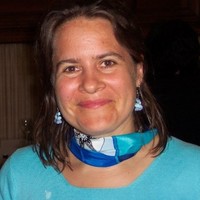

With the exception of the first Sunday of the month, YEE meets at 11:00am, concurrent with our Sunday Platform talk.
YEE | July 5 at 1:30 | July 12, 19, 26 at 11:00
YEE First Sundays — Intergenerational Celebrations
July 5: “America the Ethical…With Liberty and Justice for ALL”
The Compassionate Pen Project invites you to write speeches/poems/anthems expressing your concerns, ideas and hopes in this time of protest and pandemic.
There are no upcoming events at this time
Ethics in Action
Supporting Refugees and Immigrants
Standing up for the causes that matter isn’t a one check, one day, one march, or one phone call commitment. Among our members who are committed to living lives of “ethics in action” is cyclist/activist/photographer David Vassar. Back in April, David joined dozens of demonstrators in front of Governor Cuomo’s office while others on bicycles and in cars circled the block, honking in support of asylum seekers and in protest against human rights abuses by ICE.
Local Heroes
New York State and City Acting for Police Reform
Gov. Andrew Cuomo issued an executive order on Saturday, June 13, requiring every local government — in collaboration with community members — to redesign the state’s more than 500 police forces by April 2021 or risk losing state funding. Cuomo said that police departments need to be redesigned, reformed, and remade.
The governor is not dictating how the departments should be reborn, beyond following the new legislation. He is saying that the agencies and their communities are to work together on this. Recognizing that from now through to April 1, 2021, Cuomo made the comparison to gestation period, saying that “ it takes nine months to give birth, and New York State is going to birth a new vision for a police force in each community.” (channel 2 WGRZ) Some of the areas required to be addressed are:
- use of force by police officers
- crowd management
- community policing
- implicit bias awareness training
- de-escalation training and practices
- restorative justice practices
- community-based outreach
- citizen complaint procedures
In an interview on WNYC, Cuomo said,
I don’t think it’s just about cutting a budget, just about passing a law here or there. I think it’s time to sit down and redesign the entire police department. Before you cut the budget “X” amount, do it the other way. How many police do you want? What do you want them to do? What is your use-of-force policy? How do you end the bias in the police department? What kind of disciplinary procedure do you want? What kind of civilian review board do you want? Answer all of the above questions, not just one or two. This is a moment for change. But you then have to answer the question. We understand that people are not happy. Now, the follow-up is, what do you want to do about it?
Here’s what our state is doing about it, so far. Between June 8 and 15, New York State became one of the first to begin making significant changes in police practices. The NYS Senate and Assembly passed bills:
- Eric Garner Anti-Chokehold Act: makes it a class B felony for police officers to cause serious physical injury or death to a person using a prohibited chokehold maneuver.
- Police STAT Act: requires police departments across the state to record and report information on who is arrested and ticketed, what race they are, where it happened, and how many people are dying in police custody.
- requiring police departments to have annual reports on arrest-related deaths submitted to the Department of Criminal Justice Services, the Governor, and the Legislature.
- amending the Civil Rights Law by adding a new section that affirms New Yorkers’ right to medical and mental health attention while in custody.
- The New York State Police Body-Worn Cameras Program will direct the Division of State Police to provide all state police officers with body-worn cameras that are to be used any time an officer conducts a patrol and prescribes mandated situations when the camera is to be turned on and recording.
- requiring officers to report within six hours of when they fire their weapons, requiring courts to gather demographic data, and requiring police to give medical and mental health attention to people in custody.
- creating an Office of Special Investigation within the Department of Law, under the Attorney General, which will investigate, and, if warranted, prosecute any incident of a person whose death was caused by a police officer or peace officer.
- repealed Section 50-A of the civil rights law, a 50-year-old law that kept officers’ disciplinary records a secret, shielding them from public scrutiny.
Additional legislation by the City Council:
- besides banning chokeholds, also bans other methods of restraint such as kneeling on a person’s neck during an arrest
- reaffirms the right to record police activity
- prevents officers from shielding their badge numbers from the public
- requires the police departments to identify problematic officers
- requires the NYPD to “develop a disciplinary matrix that outlines penalties for violations and to publicly report on the usage of this matrix
What We're Up To
Vassar’s Visions
More floral photos from David Vassar’s perambulations around Morningside and Riverside.
Share your news. Email Elinore, Outlook editor, at ethicaloutlook@gmail.com
Caring & Sharing
Revising the Definition of Racism
Webster’s Dictionary is always in flux, keeping up with the latest words and usages. But the publishers are not in the habit of changing the definitions. However, one young lady asked them to consider doing just that. Kennedy Mitchum, a recent graduate of Drake University who lives in Missouri, says she often found herself arguing with others about the meaning of the word “racism.” Checking the definition in Webster’s Dictionary, she saw this: “a belief that race is the primary determinant of human traits and capacities and that racial differences produce an inherent superiority of a particular race.”
Kennedy found that to be woefully inadequate. She emailed the publisher and said that the definition should be changed and explained why. She feels that the definition above limits the word to make it almost synonymous with prejudice, judging someone for who they are based on one trait. While that may be true, it is too limiting. Speaking on Good Morning America, Kennedy said “”It’s not just, ‘I don’t like you.’ It should include racial prejudice as well as the institutional power and oppression that exists all together.” She said the definition should explain it as “systemic oppression,” a system that oppresses a particular group. In other words, to believe and claim that one is not a racist is incorrect if one is a participant in the system in which racism is institutionalized.
To Kennedy’s complete surprise, an editor-at-large for the publication, Peter Sokolowski, contacted her immediately and informed her that the board of editors was drafting a change at once and that they would also be revising the definitions of related words.
If you visit the website today, you will see this two-part second definition, in line with what Kennedy had expressed:
2a: a doctrine or political program based on the assumption of racism and designed to execute its principles
b: a political or social system founded on racism
To Learn More and Do Something About It…
The Classical Theatre of Harlem has curated a list of anti-racism resources, including podcasts, film and TV, literature, and information and tools for conducting anti-racism assessment and training at the individual and organizational level.
The Schomburg Center for Research in Black Culture has curated the Black Liberation Reading List — 95 works of fiction, poetry, and nonfiction with a focus on Black authors, many available digitally on SimplyE, NYPL’s free e-reader app.
Museum of Natural History Does the Right Thing
Finally, finally, the Museum of Natural History will remove the statue of Teddy Roosevelt from its front. The purpose of the statue, commissioned in 1925 and placed at the museum in 1940, was to celebrate Roosevelt as a naturalist and as one of the museum’s founders. But the depiction of the proud Roosevelt astride his elegant steed, flanked by barefoot escorting figures — a Native American man on one side, an African man on the other — has long been considered an offensive symbol of colonialism and racism.
AEU News
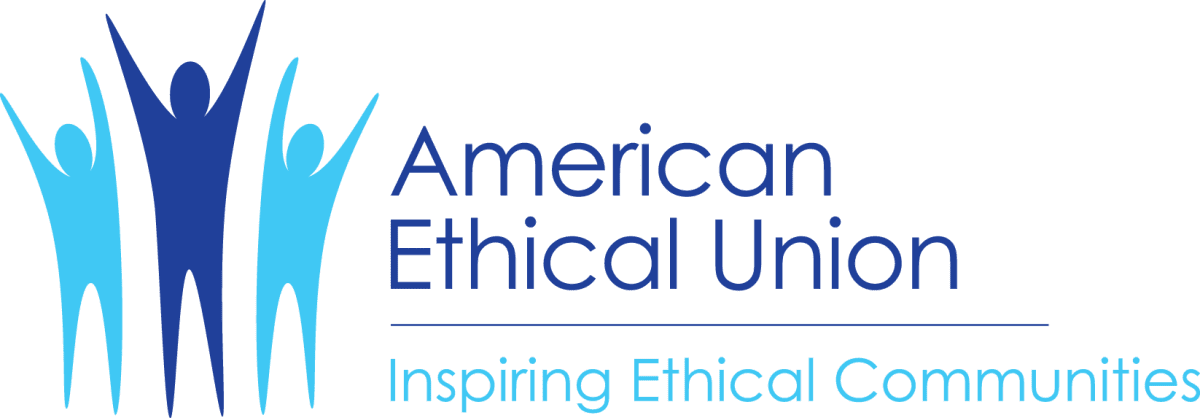
About Structural Racism
Bart Worden, AEU Executive Director
Excerpt from his blog from June 8
I don’t have to be “tough” or “cool” or “stay together.” People who look like me have a whole structure of attitudes and institutions that take care of that for us. And we have a “justice” system designed to keep it that way. That system is based on inequity, fueled by avarice, and protected by violence — and we don’t have to overtly endorse it in order to support it…
Structural racism is a powerful force spread across multiple systems and institutions and is extremely pernicious and resilient… Right now, structural racism is predominantly, and immediately, fatal to black and brown people in this country. Like malignancy, the destruction wrought by structural racism will continue to grow until all is laid waste for everyone – unless we do something about it. Actually, unless we do a lot of somethings about it.


We have been infected with racism and we are allowing it to destroy lives and ruin futures…The REAL crime in this country has been the dedication with which we have maintained the structures of inequity despite the horrible impact upon our black and brown neighbors.
We need to cut off the blood supply (i.e., funding) that permits malignant growth. Let’s starve the beasts of structural racism.
There is a lot to do – best we get on with it.
A good place to start is with your local police department. The police are the primary enforcers of structural racism and they are very serious about that aspect of their job. Your local police department must be held accountable for the practices they engage in. But the powers that be will not listen so long as the funding continues to flow into their coffers. Demand accountability. Demand that they provide data about whom they arrest and adjudicate and why.
And while you are in town, keep going – check in with the zoning people about the provisions for fair and affordable housing. Check in with the school board about their disciplinary practices. Find out how your local hospital is meeting the healthcare needs of the underinsured.
The main point is this: structural racism is a problem white people created and need to correct. White people have the power to make changes and hold the keys for getting changes to stick.
There is a lot to do – best we get on with it.
Ethical NYC In The News
![]()
![]()
![]()
![]()
Ethical Essentials Quiz: Do You Know?
Compiled by Richard Koral and Larry Hurst
The story of the New York Society for Ethical Culture is both remarkable and fascinating. But how much do you know about it? Here below, and in each forthcoming issue of Outlook, you will see a question about the Society, focusing variously on its history, members, events and milestones.
This month’s question: Who was Anna Garlin Spencer?
Submit your answer to today’s question to Ethicaloutlook@gmail.com and in next month’s issue we’ll print the names of those giving the most relevant and informative answers along with a summary of that information.
Our Ethical Family
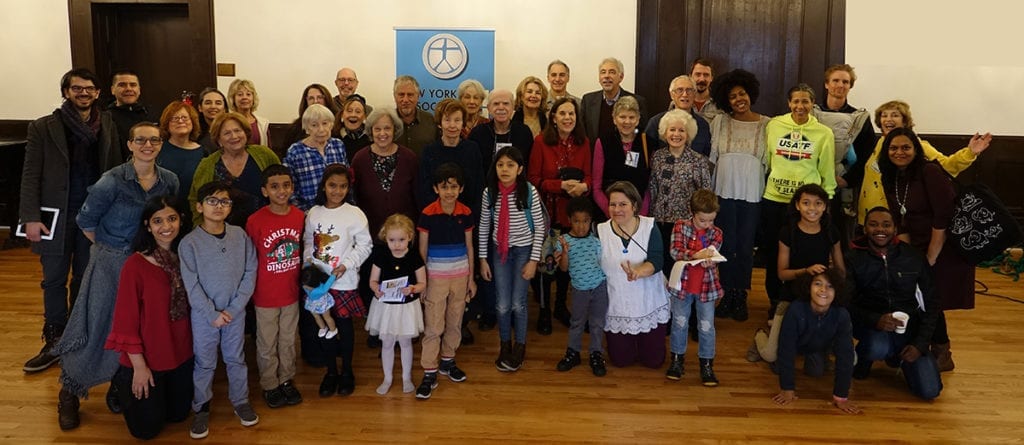
July Birthdays
LARRY HURST…………………………………….… 7/1
SHAUN CARSON SYLVESTER WILLIAMS……..7/4
AMY SCHWARZ…….……………………………………..7/5
JOE FASHING…………………………………………..….7/8
DEBRA CURTIS-GREEN
and CHUCK DEBROVNER …………………………….7/12
JANICE BUZBY and HARVEY SIMON……………7/25
KATHLEEN O’CONNELL
and MONICA WEISS………………………………….….7/26
MARION BURNS………………………………………….7/28
Ethical Affinity Groups
SOCIAL JUSTICE
American Indian Community House
Amnesty International
Feminist Freethinkers
Formerly Fundamentalists
League of Women Voters
Police Reform Organizing Project
Radical Age Movement
ENVIRONMENTAL
350NYC
Climate Reality Project
Drawdown NYC
Food & Water Watch
NYC Grassroots Alliance


